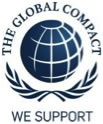Supply Chain Code Of Conduct
1. Scope and Applicability
SES maintains the highest standards of corporate governance and ethics, and we conduct our business in an open, honest and ethical manner as described in our Code of Conduct. SES has embarked on a journey of continuous improvement with the aim to be recognized as an industry leader in corporate responsibility and therefore actively strives to implement socially responsible supply chain practices and anti-corruption practices by working closely with our customers and suppliers as partners.
We expect our suppliers to operate with similar values as ours and will encourage them, where necessary, to adopt similar corporate responsibility policies as our own. Also, as a commitment to the communities where we operate, we will support local businesses, train and employ local people, and utilize local resources wherever we can.
We believe the behavior of our Suppliers and Contractors are important to our business and to the projects we deliver to our customers. For this reason we bind our Suppliers and Contractors to follow this Code of Conduct. We expect them, as a minimum, to comply with the law and operate to internationally recognized standards, appropriate codes of practice and strive to implement socially responsible supply chain, anti-bribery and anti-corruption practices. In addition, we encourage them to adopt our preferred standards and will actively engage and support those who do so.
2. Requirements to be met
Our minimum and preferred requirements for Suppliers and Contractors are set out in this table.
AS A MINIMUM |
PREFERRED |
A. Corporate Governance and EthicsSES favours Suppliers and Contractors who share our commitment to corporate responsibility: |
|
|
|
B. Labour / Workplace ManagementSES favours Suppliers and Contractors who share our commitment to human rights and fair employment practices: |
|
|
|
C. Occupational Health and SafetySES favours Suppliers or Contractors who are committed to maintaining and improving the work environment so that it is safe and healthy for all staff and visitors: |
|
|
|
D. EnvironmentSES favours Suppliers and Contractors who conduct their business operations in a way that protects and sustains the environment: |
|
|
|
E. SuppliersSES favours Suppliers and Contractors who adopt similar principles and practices to these in this Code in selecting, monitoring and managing their own sub-suppliers and contractors, including technical and commercial performance, effective and accountable quality practices, exclusion of counterfeit materials and minimal rework: |
|
|
|
F. Community EngagementSES believes every company has a responsibility to the local communities on which they have an impact and from which they profit. Our approach is to understand the issues facing the communities in which we operate, and to endeavour to conduct business in a way that builds social capital and achieves a positive impact. We favour Suppliers and Contractors who share this philosophy: |
|
|
|
G. Personal Data ProtectionSES favours Suppliers or Contractors who continually fulfil their responsibilities with regard to protecting personal data of individuals.At a minimum, Suppliers and Contractors must comply with all relevant local and national laws relating to the privacy and security of personal data, including the European Union General Data Protection Regulation (EU GDPR), and have a process to ensure that their own sub-suppliers, service providers, and subcontractors, comply with all such laws.
|
|
|
|
|
 SES parent company is a signatory to the United Nations Global Compact, which aligns our practices with the ten universally accepted principles in the areas of human rights, labour standards, environment and anti-corruption.
SES parent company is a signatory to the United Nations Global Compact, which aligns our practices with the ten universally accepted principles in the areas of human rights, labour standards, environment and anti-corruption.